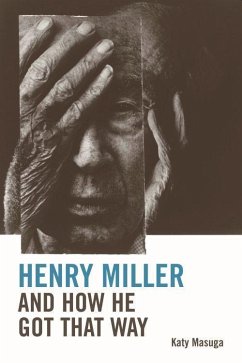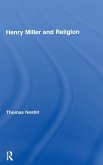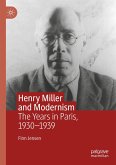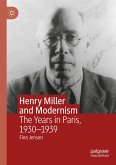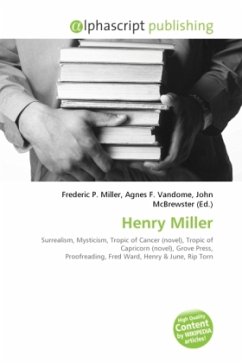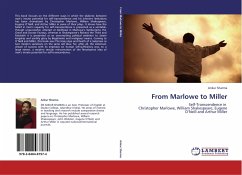Identifying six significant writers - Whitman, Dostoevsky, Rimbaud, Lewis Carroll, Proust and D. H. Lawrence - Katy Masuga explores their influence on Miller's work as well as Miller's retroactive impact on their writing. She explores four forms of intertextuality in relation to each 'ancestral' author: direct allusions; unconscious style; reverse influence; and participation of the ancestral author as part of the story within the text. The study is informed by the theories of Bakhtin, Barthes and Kristeva on polyvocity and of Blanchot, Wittgenstein and Deleuze on language games and the indefatigability of writing. By presenting Miller in intertextual context, he emerges as a noteworthy modernist writer whose contributions to literature include the struggle to find a distinctive voice alongside a distinguished lineage of literary figures. Key FeaturesMajor contribution to rehabilitating an important and often overlooked twentieth-century writerPlaces Miller's work in thought-provoking intertextual relationships among a diverse range of writersProvides an incisive critical approach to Miller's writing
Henry Miller and How He Got That Way Katy Masuga Identifying six significant writers - Whitman, Dostoevsky, Rimbaud, Lewis Carroll, Proust and D. H. Lawrence - Katy Masuga explores their influence on Miller's work as well as Miller's retroactive impact on their writing. She explores four forms of intertextuality in relation to each 'ancestral' author: direct allusions; unconscious style; reverse influence; and participation of the ancestral author as part of the story within the text. The study is informed by the theories of Bakhtin, Barthes and Kristeva on polyvocity and of Blanchot, Wittgenstein and Deleuze on language games and the indefatigability of writing. By presenting Miller in intertextual context, he emerges as a noteworthy modernist writer whose contributions to literature include the struggle to find a distinctive voice alongside a distinguished lineage of literary figures. Katy Masuga gained a PhD in Comparative Literature from the University of Washington, Seattle in 2007. She is the author of The Secret Violence of Henry Miller (Camden House 2011) and is currently an Associated Researcher at Paris-Sorbonne University and Editorial Coordinator at Sony Computer Science Laboratory in Paris.
Hinweis: Dieser Artikel kann nur an eine deutsche Lieferadresse ausgeliefert werden.
Henry Miller and How He Got That Way Katy Masuga Identifying six significant writers - Whitman, Dostoevsky, Rimbaud, Lewis Carroll, Proust and D. H. Lawrence - Katy Masuga explores their influence on Miller's work as well as Miller's retroactive impact on their writing. She explores four forms of intertextuality in relation to each 'ancestral' author: direct allusions; unconscious style; reverse influence; and participation of the ancestral author as part of the story within the text. The study is informed by the theories of Bakhtin, Barthes and Kristeva on polyvocity and of Blanchot, Wittgenstein and Deleuze on language games and the indefatigability of writing. By presenting Miller in intertextual context, he emerges as a noteworthy modernist writer whose contributions to literature include the struggle to find a distinctive voice alongside a distinguished lineage of literary figures. Katy Masuga gained a PhD in Comparative Literature from the University of Washington, Seattle in 2007. She is the author of The Secret Violence of Henry Miller (Camden House 2011) and is currently an Associated Researcher at Paris-Sorbonne University and Editorial Coordinator at Sony Computer Science Laboratory in Paris.
Hinweis: Dieser Artikel kann nur an eine deutsche Lieferadresse ausgeliefert werden.

